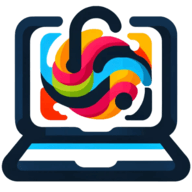3 Lessons Learned from Starting Out as a Full Stack Engineer
Delving into the world of full stack engineering can be an overwhelming experience, but guidance from seasoned professionals can illuminate the path. This article distills hard-earned wisdom from experts who have navigated the complexities of mastering both front-end and back-end technologies. Readers will gain valuable perspectives on the fundamental skills and roles that define a successful full stack engineer's journey.
- Focus on Mastering Fundamentals
- Understand Full Stack Engineer Role
- Master Fundamentals Before Chasing Trends
Focus on Mastering Fundamentals
If I could give my past self advice as I was just starting out as a full stack engineer, it would be to focus more on mastering the fundamentals and understanding the "why" behind the tools and technologies you're using, rather than just the "how." Early on, I was eager to jump straight into building features, often picking up tools or frameworks that were trendy without fully understanding the core principles that made them effective.
What I wish I knew back then is that solid foundational knowledge in both front-end and back-end principles is far more valuable than knowing the latest library or framework. Understanding how things like HTTP requests, databases, and server-side rendering work at a deeper level can help you debug issues more effectively and design more efficient, scalable systems.
Also, don't rush the learning process. It's okay to take your time to fully grasp concepts before moving on to more advanced topics. As a full stack engineer, you're dealing with multiple layers of the stack, and having a holistic understanding of how each part interacts will make you a much stronger and more adaptable developer. Lastly, focus on soft skills like communication and teamwork. As much as coding is important, being able to collaborate, explain your ideas, and understand the needs of others in a team setting is key to success.

Understand Full Stack Engineer Role
I wish I knew that Full Stack Engineer is such a broad term that I couldn't possibly fulfill the entire role.
I thought it meant I needed to know every front end, every back-end, and every database tech. In reality, it means you need to know one of each where they can be commonly used together.

Master Fundamentals Before Chasing Trends
If I could give advice to my past self just starting out as a full-stack engineer, I'd say: "Focus on mastering the fundamentals before chasing the latest tech trends." Early on, I was eager to jump into every new framework and tool, but I've since learned that a solid understanding of core concepts-like data structures, algorithms, and system design-pays off in the long run. I also wish I had known the importance of writing clean, maintainable code and the value of effective communication in cross-functional teams. Another big lesson? Impostor syndrome is normal-everyone feels it at some point. Keep learning, stay curious, and don't be afraid to ask questions.


